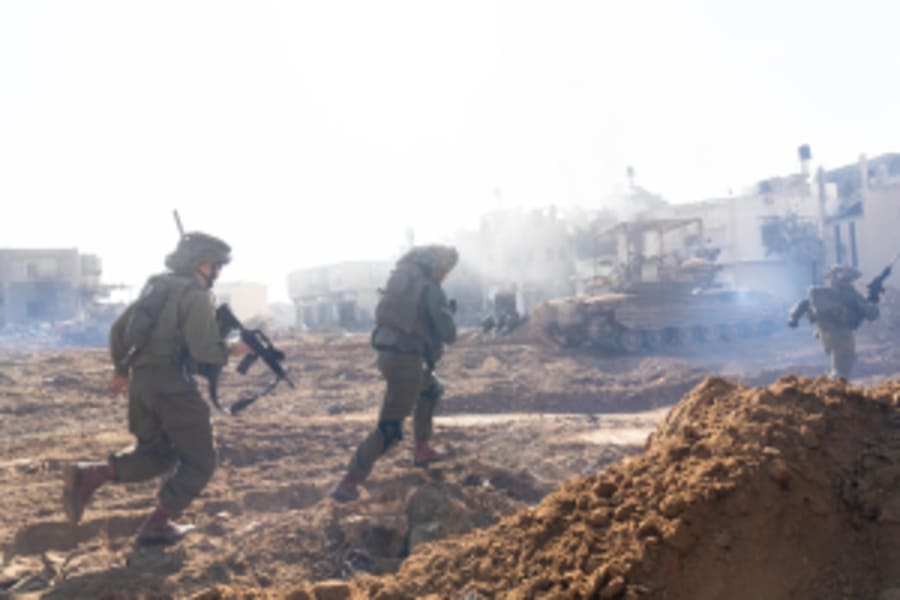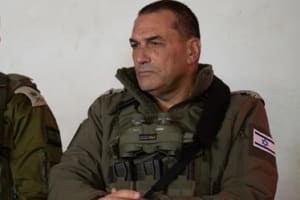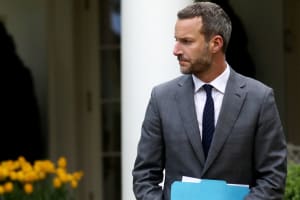US to present Rafah op alternatives to Israeli team led by former Amb. Dermer next week
Taking corridor on Egyptian border instead of large offensive among US ideas

Strategic Affairs Minister Ron Dermer will lead an Israeli delegation to discuss possible alternatives to the IDF's planned ground incursion into the town of Rafah in southern Gaza. The delegation will be joined by U.S. officials next week, the Prime Minister’s Office announced Tuesday.
Accompanying Dermer, Israel's former ambassador to the U.S., will be Israeli National Security Advisor Tzachi Hanegbi and Maj.-Gen. Ghassan Alian, the commander of the IDF unit responsible for coordinating military activities in the West Bank and Gaza (COGAT).
Defense Minister Yoav Gallant will travel separately to the U.S. next week, for the first time since the war began, to “hold an in-depth dialogue on a range of security issues” with U.S. Secretary of Defense Lloyd Austin.
U.S. President Joe Biden and Israeli Prime Minister Benjamin Netanyahu agreed that Israel would send a delegation to discuss the Rafah operation during their phone call last Monday, amid increasing tensions between the two governments over Israel’s military strategy in the Gaza war.
The Biden administration opposes any major ground operation by Israeli forces in Rafah, while Netanyahu has argued that it is a necessary condition to win the war.
U.S. officials reportedly intend to present the Israeli delegation with several alternative strategies.
“This isn’t just us saying, ‘No you can’t do it.’ We’re saying that we’re willing to work with you on viable alternatives that still help you achieve your objectives,” a senior U.S. official told The Times of Israel.
One idea is to focus first on improving the humanitarian situation in the northern Gaza Strip and delay any military operation in Rafah, the Axios news outlet reported.
The goal is to reduce the potential for civilian harm during a later incursion into Rafah by first countering what a recent UN report called “imminent” famine – a claim Israel rejects – by increasing aid shipments and constructing shelters for civilians evacuated from Rafah.
Another idea suggests that Israel focus on capturing the Philadelphi Corridor, running along the Egyptian border, instead of a large incursion into Rafah, which lies adjacent to the corridor, a U.S. official told the Times of Israel.
In this way, Israel could stop the smuggling of weapons and supplies reaching Hamas through tunnels under the corridor, which the official said would be more conducive to the defeat of the terror group than a Rafah operation.
“If Israel smashes into Rafah with all the civilian casualties that doing so would entail, cooperation from Egypt on locking down the [Philadelphi] Corridor will be much more difficult,” the official said.
Despite Netanyahu approving the IDF’s plans for the evacuation of over one million civilians in Rafah – and a military incursion to follow – the offensive seems to be on hold for the moment.
An Israeli official told Ynet News that besides the discussions with the U.S., the ongoing negotiations over a hostage deal and a possible ceasefire are another incentive for this.
“You cannot evacuate more than a million citizens from Rafah, and if there is a ceasefire you will allow them to return,” he said. “The topic of the deal is very important, and we want to reach it, so it is clear that there will be a delay in the action in Rafah.”
“Meanwhile, the army is increasing its operations to hunt down the leaders of Hamas,” he added.

The All Israel News Staff is a team of journalists in Israel.













